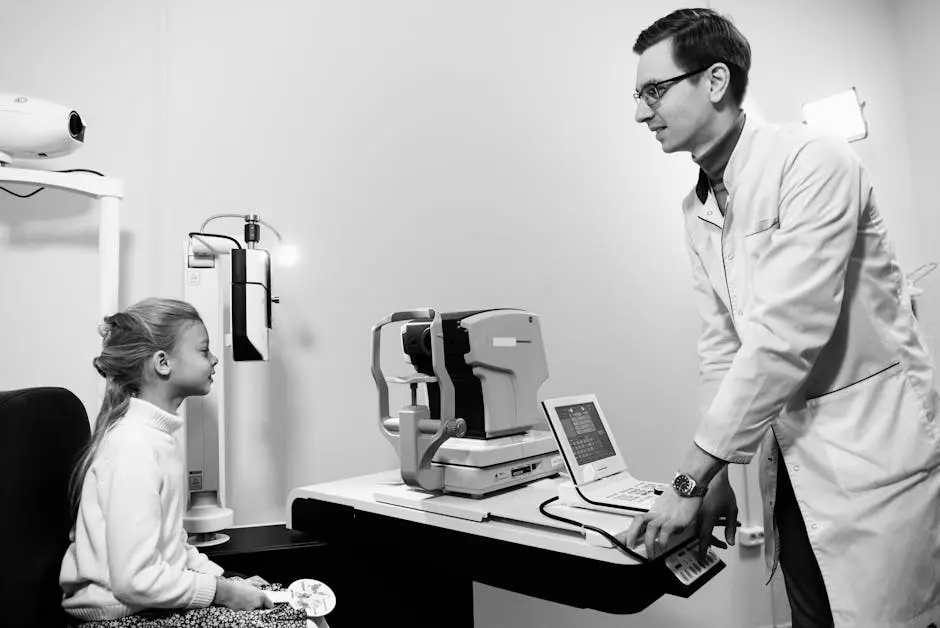
Glaucoma is a complex eye condition that can lead to serious vision problems if not treated properly. Understanding your treatment options is crucial for managing this disease effectively. In this FAQ, we’ll explore the key aspects of glaucoma treatment in a way that’s easy to understand.
What is Glaucoma?
Glaucoma is a group of eye conditions that damage the optic nerve, crucial for good vision. This damage is often caused by abnormally high pressure in your eye.
It’s important to understand that glaucoma can develop without any early warning signs. The vision loss it causes is gradual, which is why regular eye check-ups are vital. Detecting glaucoma early and starting treatment is key to preserving your vision.
Why is Treatment Important?
Treatment is essential to prevent further damage to the optic nerve and to preserve vision. Untreated glaucoma can eventually lead to blindness.
Early intervention doesn’t just halt the progression of damage; it also enhances the quality of life. Regular treatment improves the ability to maintain a normal lifestyle without the added worry of deteriorating sight.
What Are the Common Treatment Options?
Common treatments include medications like eye drops, laser therapy, and various surgical options. Your healthcare provider will choose the best option depending on your unique situation.
Eye drops are often the first line of treatment for many patients. They work by either reducing the production of fluid in your eyes or helping improve the drainage of fluid. It’s crucial to follow your doctor’s prescription closely to manage your condition effectively.
Laser therapy, another promising option, can be particularly beneficial when medications are insufficient. For those who are eligible, laser treatments can help significantly increase the outflow of eye fluids, thus reducing ocular pressure.
How Do Medications Work?
Medications for glaucoma, primarily in the form of eyedrops, work to lower pressure inside the eye, slow down the production of fluids within the eye, or improve fluid flow to reduce pressure.
It’s important to adhere to your treatment regimen to get the best results. Missing doses can lead to increased eye pressure, putting your vision at risk. Consistent use of the prescribed medication enables you to manage the condition more effectively, reducing the risk of vision loss.
What Are the Benefits of Laser Treatment?
Laser treatment is a less invasive option that can help to lower eye pressure and improve drainage. It’s often used when medications aren’t enough to control eye pressure.
An advantage of laser treatment is its relatively quick recovery time. Patients can return to their usual activities shortly after the procedure, all with minimal discomfort.
What Should I Know About Surgery?
Surgery aims to improve the drainage of fluid within the eye to lower pressure. Procedures like trabeculectomy or tube shunt surgery might be recommended based on your condition.
Surgical methods are generally more invasive but can be very effective in controlling eye pressure, too. Your eye care professional will consider your overall health, age, and the progression of your glaucoma before recommending surgery.
What Lifestyle Adjustments Can Help?
Maintaining a healthy lifestyle, regular physical exercise, avoiding excessive eye strain, and having routine eye exams are vital components in managing glaucoma effectively.
Eating a diet rich in vegetables and fruits can contribute to eye health. Reducing caffeine intake and avoiding smoking are other important steps. These lifestyle adjustments, when combined with medical treatment, can help manage glaucoma more effectively.
Wrapping Up Your Glaucoma Treatment Journey
While glaucoma is a serious condition, understanding the treatment options available to you can make all the difference. Regular check-ups, adherence to prescribed medication, and lifestyle adjustments are essential steps in managing your eye health effectively. Remember, consulting with your eye care professional will provide you with a personalized treatment plan tailored to your specific needs. Visit our homepage to learn more about how we can assist you.

